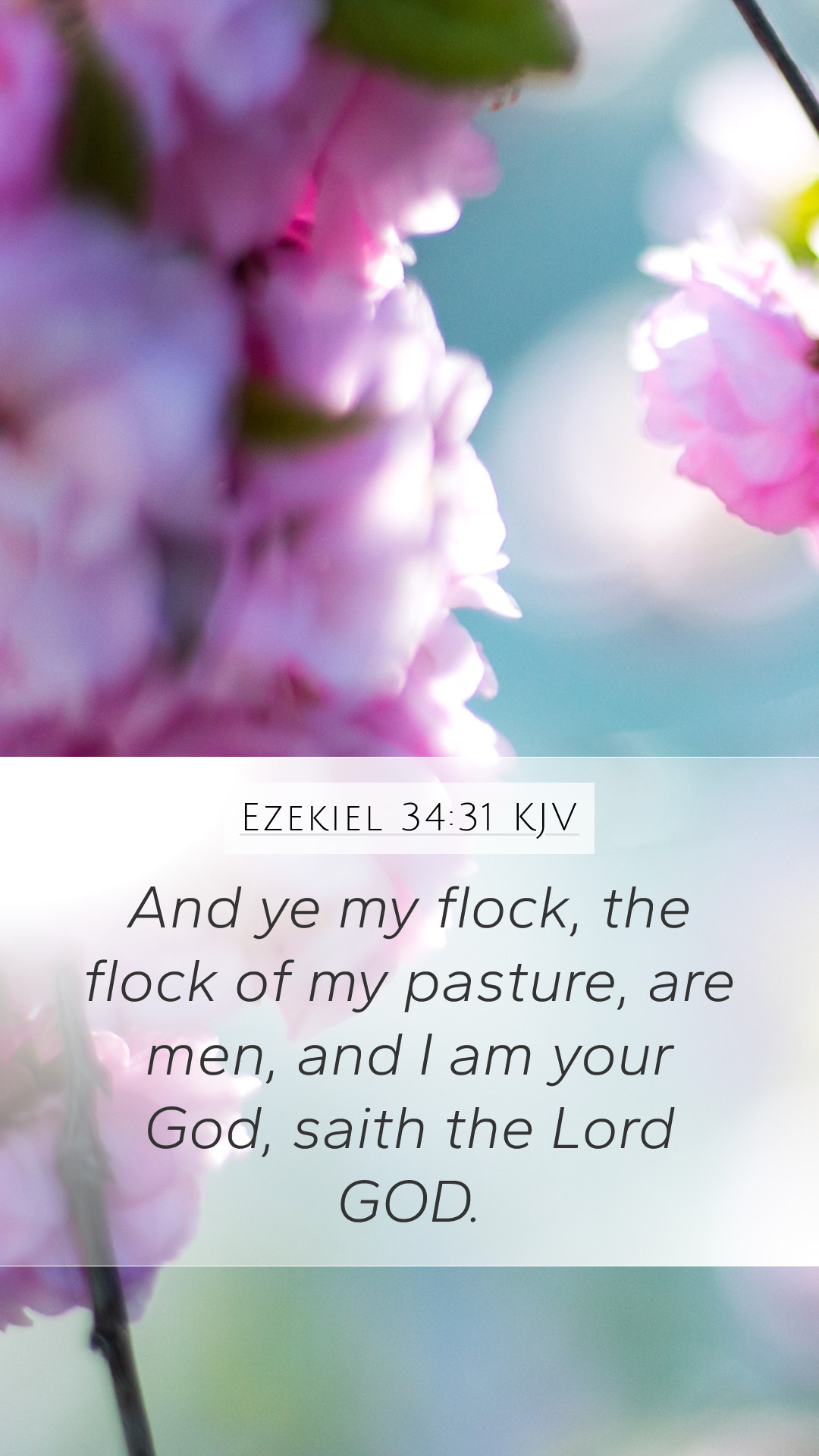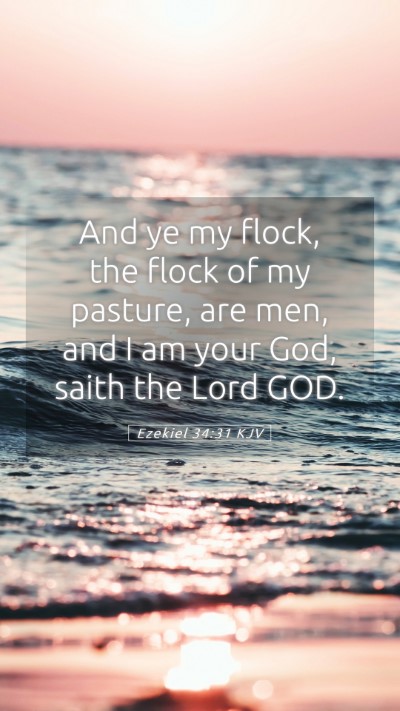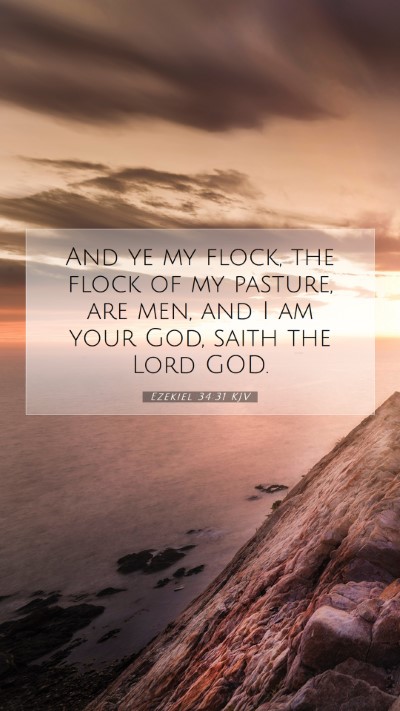Ezekiel 34:31 - Bible Verse Meaning and Commentary
Ezekiel 34:31 states: "And ye my flock, the flock of my pasture, are men, and I am your God, saith the Lord God."
Overview
This verse serves as a powerful conclusion to the imagery of sheep and shepherd that permeates the chapter. Ezekiel uses this metaphor to communicate God's relationship with His people, emphasizing His care, guidance, and authority.
Meaning of Ezekiel 34:31
In Ezekiel 34:31, God identifies His followers as His flock, affirming their value and His role as their shepherd. This acknowledgment highlights a reciprocal relationship, where God's flock recognizes their dependence on Him for sustenance and protection.
Insights from Public Domain Commentaries
-
Matthew Henry's Commentary:
Henry emphasizes the tenderness of divine care, noting that God's people are not to be considered mere statistics or names but are cherished individuals. He elaborates on the metaphor of the flock as indicative of community and the necessity of spiritual leadership.
-
Albert Barnes' Notes:
Barnes posits that this verse reflects the assurance of God’s presence and guidance. He interprets the term "God" as an affirmation of God’s fidelity to His promises, where He ensures his people are led and taken care of amidst trials.
-
Adam Clarke's Commentary:
Clarke elaborates on the relationship between God and humanity depicted in this verse. He interprets "flock of my pasture" as a metaphor for provision and sustenance, indicating God's role as a generous provider who desires well-being for His people.
Scripture Analysis and Exegesis
The chapter illustrates God's condemnation of false shepherds who neglect their duty toward the flock. In contrast, this closing statement reinforces the idea of accountability; God does not abandon His people but continually nurtures and guides them. The verse can serve as a source of comfort and strength, emphasizing divine vigilance over the faith community.
Reflecting on the Verse
For modern readers, Ezekiel 34:31 calls for a deepened understanding of both God's character and our responsibilities as His followers. It encourages individuals and communities engaged in Bible study to consider how they can embody that shepherding role in their interactions with others. It also points to the importance of prayer and community as foundational elements in Christian life.
Cross References
- Psalms 100:3: "Know that the Lord, he is God: it is he that hath made us, and not we ourselves; we are his people, and the sheep of his pasture."
- John 10:14: "I am the good shepherd, and know my sheep, and am known of mine."
- Isaiah 40:11: "He will feed his flock like a shepherd: he will gather the lambs with his arm, and carry them in his bosom, and shall gently lead those that are with young."
Conclusion
In Ezekiel 34:31, the metaphor of God as shepherd serves to reassure believers of their significance and the divine care that surrounds them. This verse, rich in meaning, allows for a multitude of Bible verse interpretations by engaging with the depths of pastoral care inherent in God's nature. As individuals explore the meaning of Bible verses, they find both comfort and a call to action within this profound promise.


